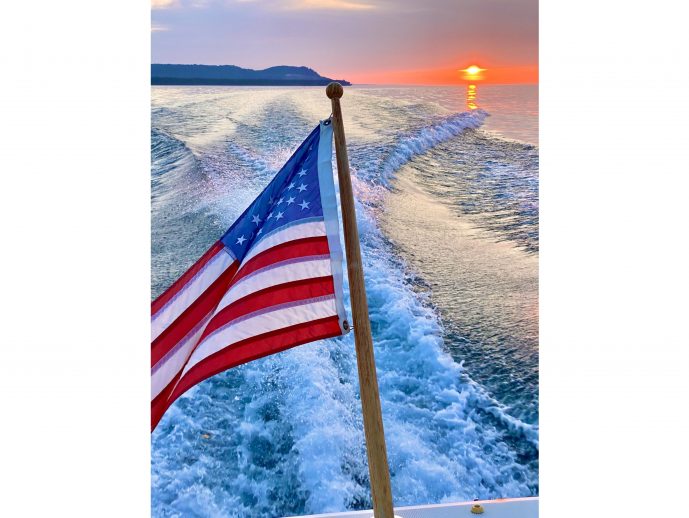Categories more
- Adventures (17)
- Arts / Collectables (15)
- Automotive (37)
- Aviation (11)
- Bath, Body, & Health (77)
- Children (6)
- Cigars / Spirits (32)
- Cuisine (16)
- Design/Architecture (22)
- Electronics (13)
- Entertainment (4)
- Event Planning (5)
- Fashion (46)
- Finance (9)
- Gifts / Misc (6)
- Home Decor (45)
- Jewelry (41)
- Pets (3)
- Philanthropy (1)
- Real Estate (16)
- Services (23)
- Sports / Golf (14)
- Vacation / Travel (60)
- Watches / Pens (15)
- Wines / Vines (24)
- Yachting / Boating (17)
Published
06/25/2021 by Water Sports FoundationThroughout the country, boaters are expected to cruise to popular gathering spots this Fourth of July weekend with friends and family, with plans to raft up, drop anchor and swim, enjoy barbecues and cap off festivities with spectacular fireworks celebrations.
"After a year of Covid restrictions, boaters are out on the water in force, soaking up plenty of sun and fun," said Water Sports Foundation Executive Director Jim Emmons. "With the addition of 415,000 new, first-time registered boat owners since 2020 who are now enjoying their first full season, we felt it was especially important to welcome them to the water and to share important safe boating strategies as we approach the busy holiday weekend."
The Water Sports Foundation recommends the following tips to maximize boating fun and safety this Fourth of July weekend, and beyond:
1. IMPORTANT BASICS: PLAN AHEAD & BE PREPARED
- Boaters should conduct a thorough inspection of their vessel and trailer to ensure everything is in working order. Check with the local Coast Guard auxiliary or Power Squadron for free vessel safety checks.
- Conduct a pre-departure check to make sure all required safety equipment is secured on board and operational.
- Top on the list: ensure life jackets are available and properly fit for weight and size for every passenger, especially youngsters. Life jackets save lives!
- Check weather conditions and plan accordingly. Be prepared to find shelter or return home if inclement weather is approaching.
- Never overload your boat. Check the capacity plate and follow all weight mandates.
- If you are operating a boat 26' or smaller, make sure to comply with the new federal law requiring boat operators to wear and engage ECOS: Emergency Cut-Off Switch. Worn by the captain, this safety lanyard will shut off the engine immediately in the case of an overboard fall.
- Make sure VHF radios, phones and EPIRB transponders work. Consider carrying a portable cell phone battery charger as back-up.
- Pack sunscreen, first-aid kit and a basic toolkit.
2. FILE A FLOAT PLAN
- Create a simple document that includes the names and contact information of all those aboard the boat, along with planned destinations, expected departure and return times.
- Leave the plan with marina personnel and/or responsible emergency contacts.
3. PRE-DEPARTURE COMMUNICATIONS
- An important and often overlooked boater safety strategy: the captain should always gather the crew prior to departure to fully review safe boating protocols and practices.
- This may include instructions for passengers to remain seated when the boat is underway; to keep arms and legs within the vessel; to wear life jackets; and to review pre-appointed assignments such designated observers during watersports activities, etc.















